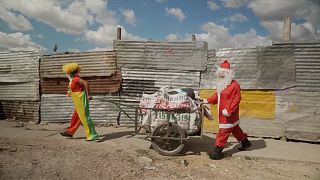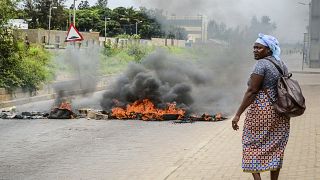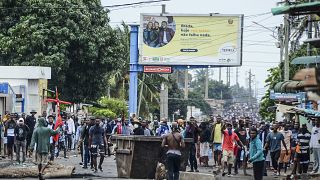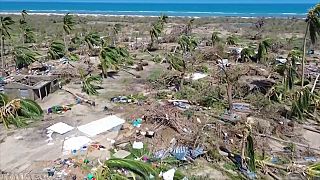Mozambique
On Monday, Pemba, Mozambique, began a rebuilding and cleanup effort following the devastation caused by Cyclone Chido, which struck the southwestern Indian Ocean on Friday and Saturday.
The cyclone, classified as a category 4 storm by the French weather service, produced winds exceeding 220 kph (136 mph).
The Cabo Delgado province, home to approximately 2 million residents, was the first area affected, with numerous homes, schools, and health facilities either partially or completely destroyed.
In Pemba, shelters accommodated displaced individuals while others started to rebuild their severely damaged properties.
A UNICEF spokesperson highlighted that communities might be isolated from schools and health services for weeks, and local authorities warned of a significant risk of landslides.
Cyclone season in the southwestern Indian Ocean runs from December to March, and southern Africa has recently experienced a series of powerful storms.
In 2019, Cyclone Idai resulted in over 1,300 fatalities, primarily affecting Mozambique, Malawi, and Zimbabwe.
Last year, Cyclone Freddy caused more than 1,000 deaths across various countries in the region.
These cyclones pose threats of flooding and landslides, and the resulting stagnant water can lead to severe outbreaks of waterborne diseases such as cholera, as well as dengue fever and malaria.
Cyclone Chido inflicted widespread damage on Mayotte, a French territory in the Indian Ocean, resulting in numerous fatalities as it headed toward Africa's eastern coastline.
The Comoros islands, located north of Mayotte, were also under siege from the storm, leading to the issuance of the highest alert in certain regions.
Inland Malawi and Zimbabwe were preparing for the cyclone's impact. Malawi's Department of Disaster Management Affairs warned of expected flooding and advised residents in at-risk areas to move to higher ground.
In Zimbabwe, authorities recommended that some individuals prepare for evacuation. Research indicates that cyclones are becoming more severe due to climate change, yet poorer countries in southern Africa, which contribute very little to this global issue, are facing the brunt of significant humanitarian crises.












Go to video
France rushes help to Mayotte, where hundreds or even thousands died in Cyclone Chido
01:32
Cyclone Chido devastates Mayotte, leaving widespread destruction and a rising death toll
00:56
Cylcone Chido barrels though Mayotte, affects Madagascar and the Comoros
Go to video
Indian Ocean islands of Comoros, Madagascar and Mayotte are bracing for Cyclone Chido
01:15
UK, US demand Mozambique's government to investigate deaths in post-election protests
Go to video
SADC extends mandate of its troops in DRC and Mozambique